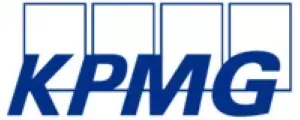With effect from 1st January 2020, a number of amendments were introduced to the Value Added Tax Act and subsidiary legislation harmonising the so-called "Quick Fixes" rules.
Four Schedules to the Value Added Tax Act (VAT Act) have been revised and a Subsidiary legislation has been amended with the intention of harmonising rules with regard to call-off stock arrangements, chain transactions, and the application of the exemption with respect to Intra-Community Supplies. These changes are tackled in Legal Notices 249, 250, 251, 252 and 253 of 2019 and transpose the amendments to the principal VAT Directive 2006/112/EC agreed at an EU level into domestic law.
Call-off Stock arrangements
Call-off stock is an arrangement whereby a supplier transfers goods to a known acquirer without transferring the ownership thereof. The acquirer has the right to take the goods from a stock of the supplier at his own discretion at which point a supply of goods takes place.
Until 2019, intra-community call-off stock gave rise to a deemed Intra-Community Supply in the Member State where the transport began and a deemed Intra-Community Acquisition in the Member State where the transport ended, subsequently followed by a domestic supply of goods. This means that generally a person supplying goods under 'call-off stock' is required to register for VAT and fulfill on-going compliance obligations in the Member State to which the goods under a 'call-off stock' are transported.
With effect from 1st January 2020 the transfer by a taxable person of goods forming part of his business assets to another Member State under a call-off stock arrangement are treated as non-supplies for VAT purposes insofar as specific conditions are met.
Chain transactions
Prior to the 2020 changes, the successive supply of the same goods from one Member State to another Member State directly from the first supplier to the last customer in the chain involving three of more parties gave rise to uncertainties in determining the leg to which the transport should be ascribed.
The amendment to the Third Schedule to the VAT Act introduced a simplifying assumption that where the transport in chain transactions is arranged for by an intermediary in the transaction, the transport shall be ascribed only to the supply made to the intermediary operator unless the intermediary operator communicates to his supplier the VAT Identification number issued to him by the Member State from which the goods are dispatched or transported in which case the transport shall be ascribed to the supply of goods by the intermediary operator.
Conditions in respect of VAT-exempt Intra-Community Supplies
Pursuant to the changes to the Fifth Schedule to the VAT Act, with effect from 1st January 2020 an Intra-Community Supply qualifies as an exempt with credit supply insofar as the following two conditions are met:
1. The Customer identifies himself with a valid VAT Identification number in a Member State other than where the transport of the goods begins; and
2. The supplier complies with its Recapitulative Statement obligations and particularly files a correct Recapitulative Statement.
Suppliers engaged in the Intra-Community Supplies of goods must retain sufficient proof that the goods have been transported from one Member State to another Member State.
KPMG observations
The so-called "Quick Fixes" seek to simplify cross-border EU trade by reducing the uncertainty arising from the current lack of harmonisation of practices and rules across Member States. At the same time, the focus on 'formal requirements' such as the requirement for a valid VAT ID number of the customer and compliance with Recapitulative Statements for Intra-Community Supplies to be treated as VAT-exempt highlight the fight against abuse.
In light of the changing VAT landscape, the "Quick Fixes" could service as an opportunity for businesses involved in cross-border intra-EU trade to assess their current business structures in order to ensure compliance with the domestic rules applicable across the 28 EU Member States and to identify solutions which could reduce their VAT compliance obligations.
The content of this article is intended to provide a general guide to the subject matter. Specialist advice should be sought about your specific circumstances.

